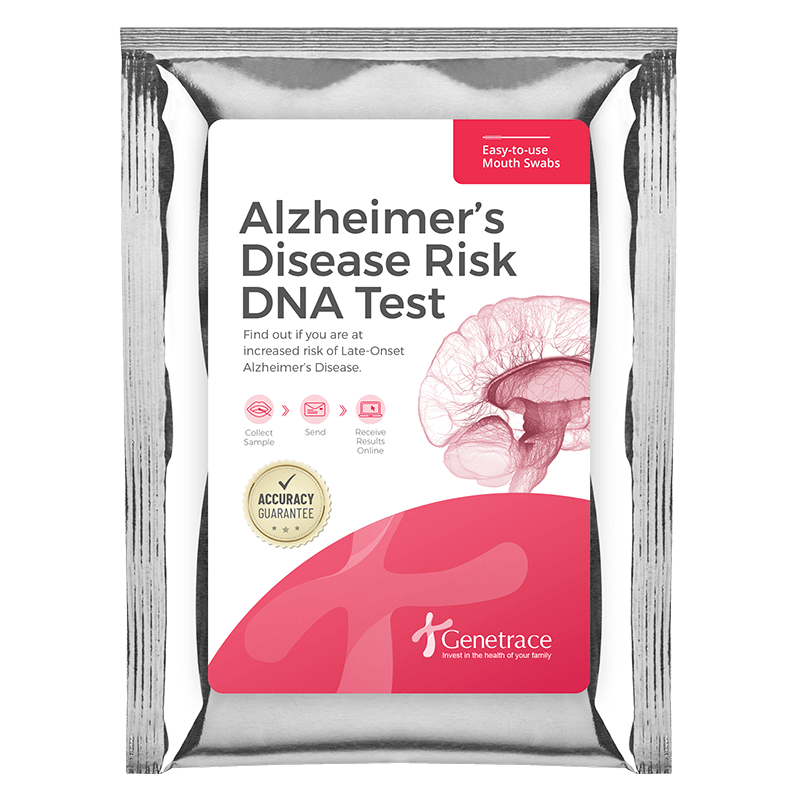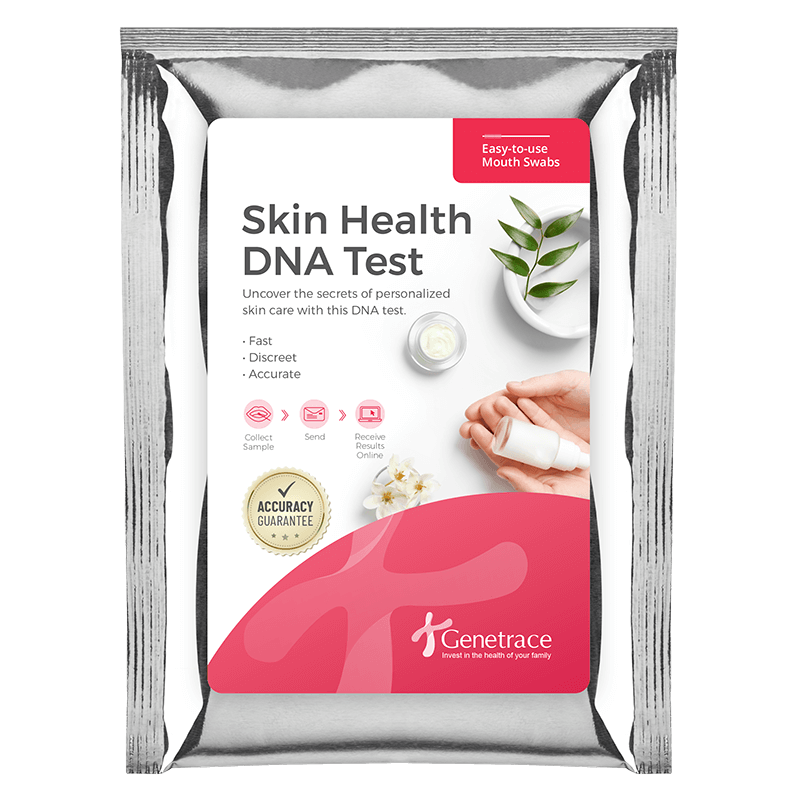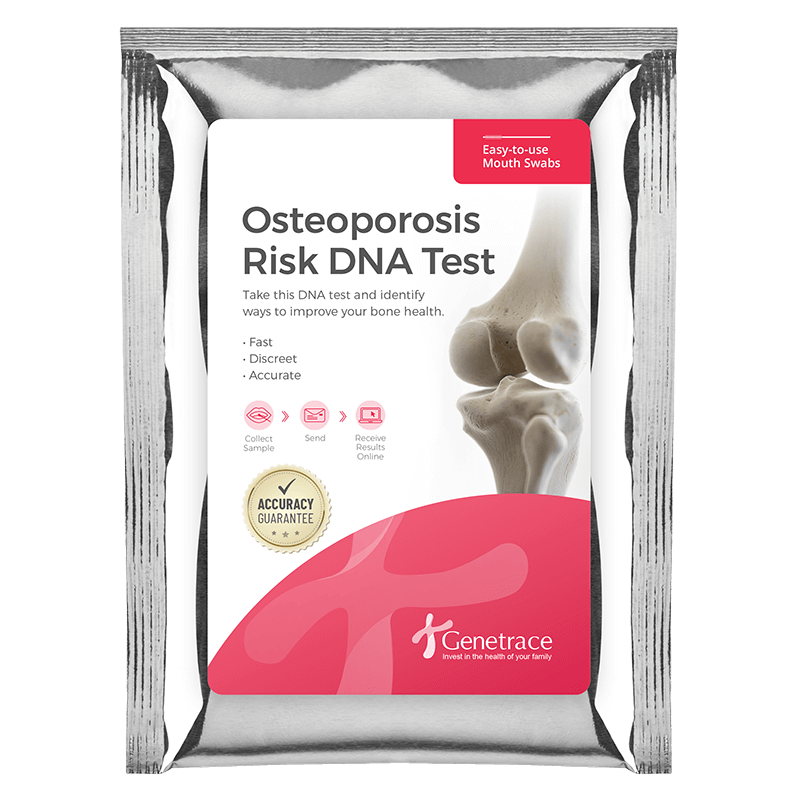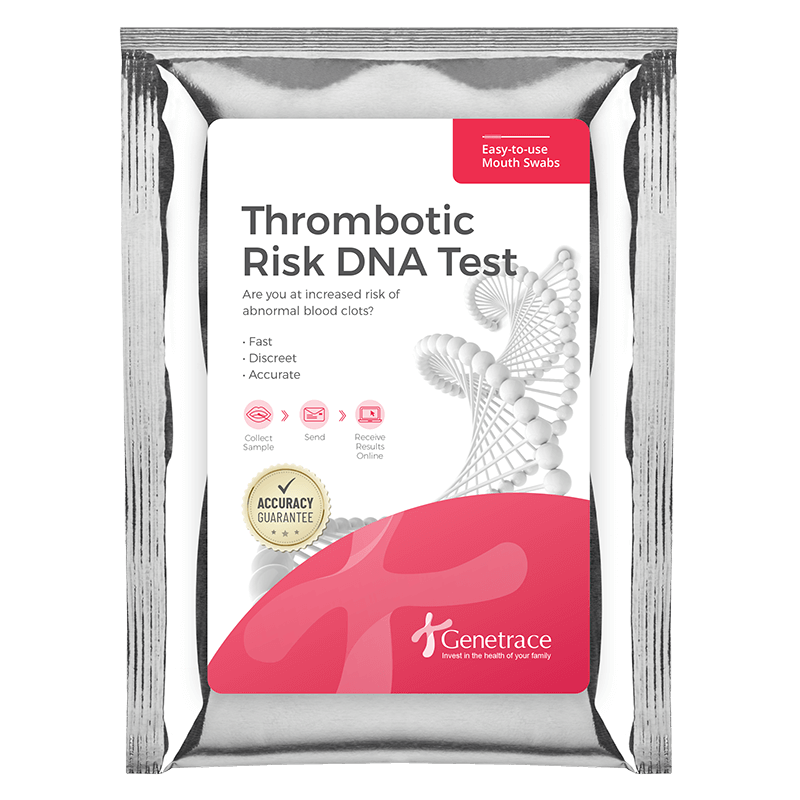Alzheimer’s Disease Risk DNA Test
$195.00
This DNA test detects the APOE variant associated with an increased lifetime risk of developing late-onset Alzheimer’s disease
Alleles Tested:
- APOE e2
- APOE e3
- APOE e4
Collection Method: Buccal (Cheek) Swab
- Free shipping both ways
- Easy-to-use cheek swabs
- AABB, ISO17025 & CLIA accredited lab
Kit includes all lab fees and free return shipping to the lab.
Receive secure, confidential results through your online dashboard.
All tests performed in our AABB, ISO 17025 & CLIA accredited laboratory.
Find out if you are at increased risk of Alzheimer’s disease
Alzheimer’s disease is a progressive brain disorder characterized initially by memory loss and later by the loss of thinking, reasoning and behavioural abilities. There are both early-onset and late-onset forms of Alzheimer’s disease. The late-onset form occurs in 90% of Alzheimer’s disease cases and the first symptoms generally appear after 65 years of age.
The APOE gene is the biggest genetic risk factor linked to the late-onset form of Alzheimer’s disease. This Alzheimer’s Disease APOE DNA test will determine whether you carry the APOE e4 allele which is associated with an increased lifetime risk of developing late-onset Alzheimer’s disease.
About the Alzheimer’s Disease APOE DNA Test
The APOE gene is the biggest genetic risk factor linked to the late-onset form of Alzheimer’s disease. The late-onset Alzheimer’s disease APOE genetic test detects which APOE alleles you had inherited from your parents. These alleles indicate whether an individual has an increased lifetime risk of developing late-onset Alzheimer’s disease.
Genetic variants of APOE
There are three genetic variants (or alleles) of APOE: APOE e2, APOE e3 and APOE e4. Each person inherits one APOE allele from each parent, so there are six possible combinations of the APOE alleles.
The late-onset Alzheimer’s disease APOE genetic test detects the specific APOE alleles that you had inherited from your parents. These alleles indicate whether an individual has an increased lifetime risk of developing late-onset Alzheimer’s disease.
- APOE e2 is relatively rare (present in 8.4% of the population) and appears to have a slight protective affect against Alzheimer’s disease.
- APOE e3 is the most common allele (77.9%) and neither decreases or increases the risk of Alzheimer’s disease.
- APOE e4 increases the risk of Alzheimer’s disease and is present in 13.7% of the population. Individuals with one copy of the APOE e4 have three times the risk of developing late-onset Alzheimer’s, while those with two copies of APOE e4 have 10X to 15X increased lifetime risk of developing Alzheimer’s Disease.
It is important to note that which having the APOE e4 genotype greatly increases the risk of developing Alzheimer’s Disease, there will be some individuals who have one or more APOE e4 alleles that never get Alzheimer’s Disease and other people who develop Alzheimer’s, despite not having any APOE e4 genes.
Age Limit: None. This test can be taken at any age.
DNA Collection Method: Buccal swabs. The DNA test kit contains buccal swabs and instructions for collecting a buccal swab sample quickly and painlessly from inside the mouth.
Specimen Requirements: Four buccal swabs, rubbed inside the mouth against the cheek for 15 seconds.
Testing Methodology Laboratory specimens are analyzed using sequence-based typing to detect the presence of three APOE alleles. Analytical specificity and sensitivity for detection of these alleles are >99%. Other alleles not listed are not detected.
Sample Handling The Alzheimer’s disease DNA test kits do not have an expiry date and can be used at any time. Once the DNA sample is collected, it must be returned to the laboratory for testing within three months of collection. No refrigeration is required. Store at room temperature.
Limitations It is important to remember that the presence of the APOE e4 allele does not mean that an individual will definitely develop Alzheimer’s disease. The APOE e4 allele does increase the the lifetime risk of developing Alzheimer’s Disease but there are many individuals that have this allele and never develop Alzheimer’s. There are also people that do not have the APOE e4 allele who develop the disease. An increased risk for Alzheimer’s can also be caused by a variety of genetic and non-genetic factors that are not detected by this assay.
Summary
Find out if you are at increased risk of Alzheimer’s disease
Alzheimer’s disease is a progressive brain disorder characterized initially by memory loss and later by the loss of thinking, reasoning and behavioural abilities. There are both early-onset and late-onset forms of Alzheimer’s disease. The late-onset form occurs in 90% of Alzheimer’s disease cases and the first symptoms generally appear after 65 years of age.
The APOE gene is the biggest genetic risk factor linked to the late-onset form of Alzheimer’s disease. This Alzheimer’s Disease APOE DNA test will determine whether you carry the APOE e4 allele which is associated with an increased lifetime risk of developing late-onset Alzheimer’s disease.
What's Measured?
About the Alzheimer’s Disease APOE DNA Test
The APOE gene is the biggest genetic risk factor linked to the late-onset form of Alzheimer’s disease. The late-onset Alzheimer’s disease APOE genetic test detects which APOE alleles you had inherited from your parents. These alleles indicate whether an individual has an increased lifetime risk of developing late-onset Alzheimer’s disease.
Genetic variants of APOE
There are three genetic variants (or alleles) of APOE: APOE e2, APOE e3 and APOE e4. Each person inherits one APOE allele from each parent, so there are six possible combinations of the APOE alleles.
The late-onset Alzheimer’s disease APOE genetic test detects the specific APOE alleles that you had inherited from your parents. These alleles indicate whether an individual has an increased lifetime risk of developing late-onset Alzheimer’s disease.
- APOE e2 is relatively rare (present in 8.4% of the population) and appears to have a slight protective affect against Alzheimer’s disease.
- APOE e3 is the most common allele (77.9%) and neither decreases or increases the risk of Alzheimer’s disease.
- APOE e4 increases the risk of Alzheimer’s disease and is present in 13.7% of the population. Individuals with one copy of the APOE e4 have three times the risk of developing late-onset Alzheimer’s, while those with two copies of APOE e4 have 10X to 15X increased lifetime risk of developing Alzheimer’s Disease.
It is important to note that which having the APOE e4 genotype greatly increases the risk of developing Alzheimer’s Disease, there will be some individuals who have one or more APOE e4 alleles that never get Alzheimer’s Disease and other people who develop Alzheimer’s, despite not having any APOE e4 genes.
Technical Information
Age Limit: None. This test can be taken at any age.
DNA Collection Method: Buccal swabs. The DNA test kit contains buccal swabs and instructions for collecting a buccal swab sample quickly and painlessly from inside the mouth.
Specimen Requirements: Four buccal swabs, rubbed inside the mouth against the cheek for 15 seconds.
Testing Methodology Laboratory specimens are analyzed using sequence-based typing to detect the presence of three APOE alleles. Analytical specificity and sensitivity for detection of these alleles are >99%. Other alleles not listed are not detected.
Sample Handling The Alzheimer’s disease DNA test kits do not have an expiry date and can be used at any time. Once the DNA sample is collected, it must be returned to the laboratory for testing within three months of collection. No refrigeration is required. Store at room temperature.
Limitations It is important to remember that the presence of the APOE e4 allele does not mean that an individual will definitely develop Alzheimer’s disease. The APOE e4 allele does increase the the lifetime risk of developing Alzheimer’s Disease but there are many individuals that have this allele and never develop Alzheimer’s. There are also people that do not have the APOE e4 allele who develop the disease. An increased risk for Alzheimer’s can also be caused by a variety of genetic and non-genetic factors that are not detected by this assay.
Explore your DNA Story
Embark on a journey of self-discovery with our at-home DNA tests, powered by cutting-edge science made accessible for all.
Simple Sample Collection
Secure Online Results
Accredited Laboratory
Discreet & Confidential
How it works
Purchase your kit
Collect DNA Sample
Mail samples to the lab
Receive your results
FAQ's
Here are the answers to the most frequently asked questions about this test.
The prevalence of dementia and, in particular, Alzheimer’s disease, increases with age with an estimated 25 – 45% of persons over 85 years suffering from some form of dementia. The lifetime risk of getting Alzheimer’s is estimated at 10 – 12% and for those individuals who have a family member with late-onset dementia; the risk increases to 15 – 30%.









